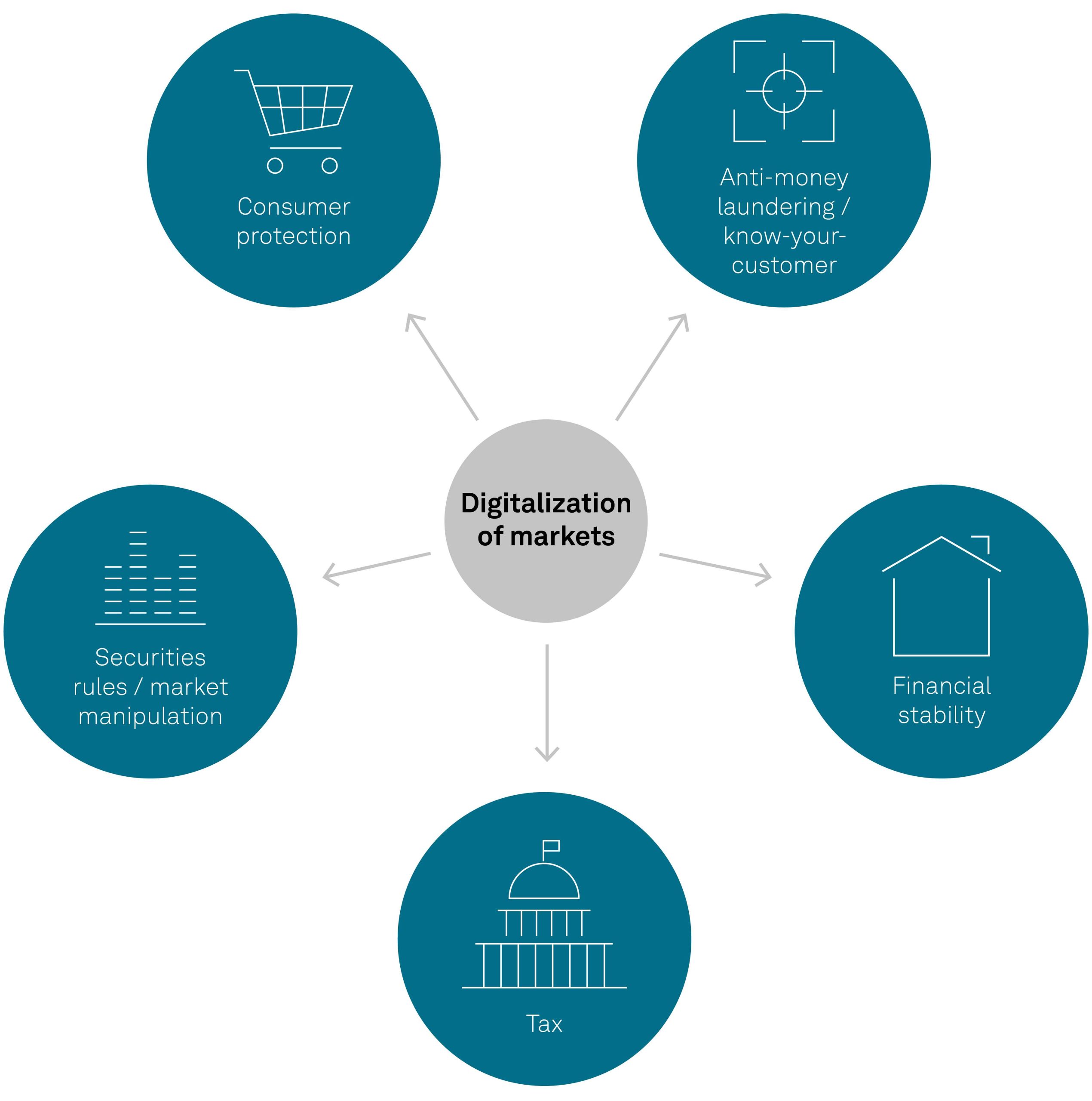How Regulation is Shaping the DeFi Ecosystem

- Understanding the impact of regulatory measures on DeFi projects
- Challenges faced by DeFi platforms in complying with regulations
- The role of decentralized governance in navigating regulatory hurdles
- Regulatory trends shaping the future of the DeFi ecosystem
- Balancing innovation and compliance in the decentralized finance space
- Potential implications of regulatory crackdowns on DeFi protocols
Understanding the impact of regulatory measures on DeFi projects
Regulatory measures have a significant impact on DeFi projects, shaping the ecosystem in various ways. It is crucial for DeFi projects to understand and adapt to these regulations to ensure compliance and sustainability in the long run.
One of the key aspects of regulatory measures on DeFi projects is the need for transparency. Regulators are increasingly focusing on ensuring that DeFi projects disclose relevant information to users and investors. This includes details about the project’s governance structure, risk factors, and potential conflicts of interest.
Moreover, regulatory measures often require DeFi projects to implement robust security measures to protect user funds and data. This includes measures such as smart contract audits, KYC/AML procedures, and insurance coverage. By prioritizing security, DeFi projects can build trust with users and regulators alike.
Another important consideration is the impact of regulatory measures on innovation within the DeFi ecosystem. While regulations can create challenges for DeFi projects, they can also drive innovation by encouraging projects to find creative solutions to comply with the rules.
In conclusion, understanding the impact of regulatory measures on DeFi projects is essential for navigating the evolving regulatory landscape. By staying informed and proactive, DeFi projects can position themselves for long-term success in a compliant and sustainable manner.
Challenges faced by DeFi platforms in complying with regulations
DeFi platforms are facing numerous challenges when it comes to complying with regulations. One of the main issues is the lack of clarity and consistency in regulatory frameworks across different jurisdictions. This makes it difficult for DeFi platforms to ensure they are operating within the boundaries of the law. Additionally, the decentralized nature of DeFi platforms poses a challenge as it is harder for regulators to monitor and enforce compliance.
Another challenge faced by DeFi platforms is the potential for regulatory backlash. As regulators become more aware of the rapid growth of DeFi and its potential risks, they may introduce stricter regulations that could stifle innovation and growth in the ecosystem. This uncertainty creates a challenging environment for DeFi platforms to navigate.
Moreover, DeFi platforms often struggle with the issue of user privacy and data protection. While DeFi offers users greater control over their assets and financial transactions, it also raises concerns about how user data is handled and protected. Ensuring compliance with data protection regulations adds another layer of complexity for DeFi platforms.
In conclusion, the challenges faced by DeFi platforms in complying with regulations are multifaceted and require careful navigation. As the regulatory landscape continues to evolve, DeFi platforms must stay informed and adapt to ensure they can operate legally and sustainably in the long term.
The role of decentralized governance in navigating regulatory hurdles
Decentralized governance plays a crucial role in helping DeFi projects navigate the complex regulatory landscape. By distributing decision-making power among a network of participants, decentralized governance mechanisms enable projects to adapt quickly to changing regulatory requirements. This flexibility is essential for DeFi platforms to remain compliant while also innovating in a rapidly evolving industry.
One of the key advantages of decentralized governance is its ability to foster transparency and accountability. By allowing community members to participate in decision-making processes, DeFi projects can ensure that their actions align with the interests of their users. This level of transparency can help build trust with regulators and demonstrate a commitment to upholding regulatory standards.
Furthermore, decentralized governance can help DeFi projects mitigate regulatory risks by enabling them to implement compliance measures more effectively. By involving a diverse group of stakeholders in the decision-making process, projects can benefit from a wide range of perspectives and expertise. This can help them identify potential regulatory hurdles early on and develop strategies to address them proactively.
Regulatory trends shaping the future of the DeFi ecosystem
Regulatory trends are playing a crucial role in shaping the future of the DeFi ecosystem. As governments and regulatory bodies around the world start to pay more attention to decentralized finance, we are witnessing a shift in the landscape of the industry. These regulatory changes are impacting how DeFi projects operate and how users interact with them.
One of the key trends that are emerging is the focus on Know Your Customer (KYC) and Anti-Money Laundering (AML) regulations. Regulators are increasingly requiring DeFi platforms to implement these measures to prevent illicit activities such as money laundering and terrorist financing. This is leading to a more compliant DeFi ecosystem, but it also raises concerns about user privacy and decentralization.
Another important trend is the push for greater transparency and disclosure in the DeFi space. Regulators are calling for more clarity around the risks associated with DeFi projects, as well as the responsibilities of developers and users. This trend is aimed at protecting investors and ensuring that they are well-informed about the potential risks involved in using DeFi platforms.
Balancing innovation and compliance in the decentralized finance space
When it comes to the decentralized finance (DeFi) space, finding the right balance between innovation and compliance is crucial. While DeFi projects strive to push the boundaries of traditional finance and create new opportunities for users, they must also navigate the complex regulatory landscape to ensure they are operating within the bounds of the law.
One of the key challenges facing DeFi projects is the lack of clear regulatory guidelines. As a result, many projects operate in a gray area, unsure of how to comply with existing regulations or what new regulations may be on the horizon. This uncertainty can stifle innovation and deter potential users and investors from participating in the DeFi ecosystem.
However, some DeFi projects are taking proactive steps to address regulatory concerns. By working closely with legal experts and regulators, these projects are developing compliance frameworks that allow them to innovate while staying on the right side of the law. This approach not only helps to mitigate regulatory risk but also builds trust with users and investors who are increasingly looking for transparency and accountability in the DeFi space.
Potential implications of regulatory crackdowns on DeFi protocols
Regulatory crackdowns on DeFi protocols could have significant implications for the entire decentralized finance ecosystem. One potential consequence is the limitation of innovation within the DeFi space as projects may be forced to comply with strict regulations, hindering their ability to experiment and develop new solutions. This could stifle the growth of the DeFi industry and limit the potential benefits it can offer to users.
Furthermore, increased regulation could lead to a reduction in the number of DeFi projects available to users, as some may be unable to meet the requirements set forth by regulators. This could result in less competition within the DeFi space, potentially leading to higher costs for users and less choice in terms of available services.
Another potential implication of regulatory crackdowns on DeFi protocols is the loss of privacy and anonymity that many users value within the decentralized finance ecosystem. Increased regulation could require users to undergo identity verification and KYC procedures, compromising their privacy and potentially deterring them from using DeFi platforms.
Overall, while regulation is important for protecting users and ensuring the stability of the financial system, it is crucial that regulators strike a balance that allows for innovation and growth within the DeFi ecosystem. Finding this balance will be key to ensuring that DeFi can continue to thrive and provide value to users in a regulated environment.



